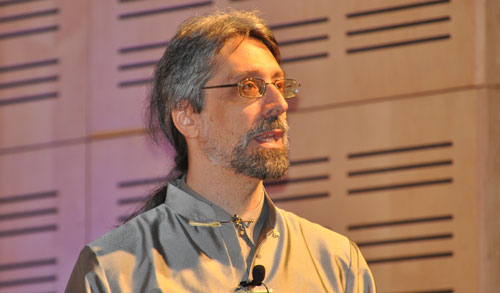
SA’s incumbent fixed-line operator, Telkom, should be considering a strategic fibre-to-the-home project to ensure customer loyalty and to grow its revenue streams in new areas, says Gartner principal analyst Will Hahn.
Hahn, speaking to TechCentral at Gartner’s annual Symposium ITxpo in Cape Town last week, says building fibre to the home is a way for Telkom to “get ahead of the curve” and create a “truly sticky service proposition” for its customers in a market that is increasingly dominated by mobile operators pushing wireless broadband alternatives to fixed lines.
In the face of local-loop unbundling — where competitors will be given more direct access to the company’s “last mile” of copper infrastructure into people’s homes — fibre would give Telkom a way of “retaliating”, Hahn says. Industry regulator, the Independent Communications Authority of SA, is working to develop regulations that will govern unbundling by November this year.
Using fibre, Telkom “could bring in premium content services, home networking services, maybe home monitoring and automation services, machine-to-machine communications in the house, intelligent power control, intelligent light control and the remote control of doors and locks,” Hahn says. “It could easily provide free ‘help’, or apps, little widgets that consumers could use for free and do neat stuff with, stuff that delights them and makes them undyingly loyal in a period where there’s increasing potential for churn.”
Telkom is in an “unusual” position in the wireless space in that it is the fourth market entrant — through 8ta — after it disposed of its 50% stake in the country’s largest mobile operator, Vodacom. “Its plunge into mobile services has to be looked at as a brave and innovative move in a very mature market with very large competitors,” says Hahn. “The fixed-line operator is not usually the third or fourth largest cellular service provider in the country, so the company is in a very unusual position.”
Building fibre access networks would give Telkom additional revenue streams and the ability to differentiate in a more competitive landscape, Hahn says. “I’m a big proponent of fibre, so my question would be, if not Telkom, then who?”
He says there is a danger that Telkom could become a “purely reactive [organisation] where it says ‘let’s do this because we’re allowed to do it’, instead of ‘let’s do this because it’s part of a connected and coherent plan’”.
“I’m not suggesting Telkom is helter-skelter, but it wouldn’t be hard to understand if it did become helter-skelter because it’s been getting slapped around by a combination of mistakes that could happen to anybody as well as political setbacks,” Hahn says.
In recent years, Telkom has poured billions of rand into failed projects, including a disastrous investment in Nigeria and aborted plans to launch a pay-TV operator.
In the face of local-loop unbundling, Hahn believes it would make sense for Telkom to consider building fibre to the home, especially in dense urban areas. “Eventually,” he says. “fibre will come to all but the most remote areas.” — Duncan McLeod, TechCentral
- Subscribe to our free daily newsletter
- Follow us on Twitter or on Facebook




